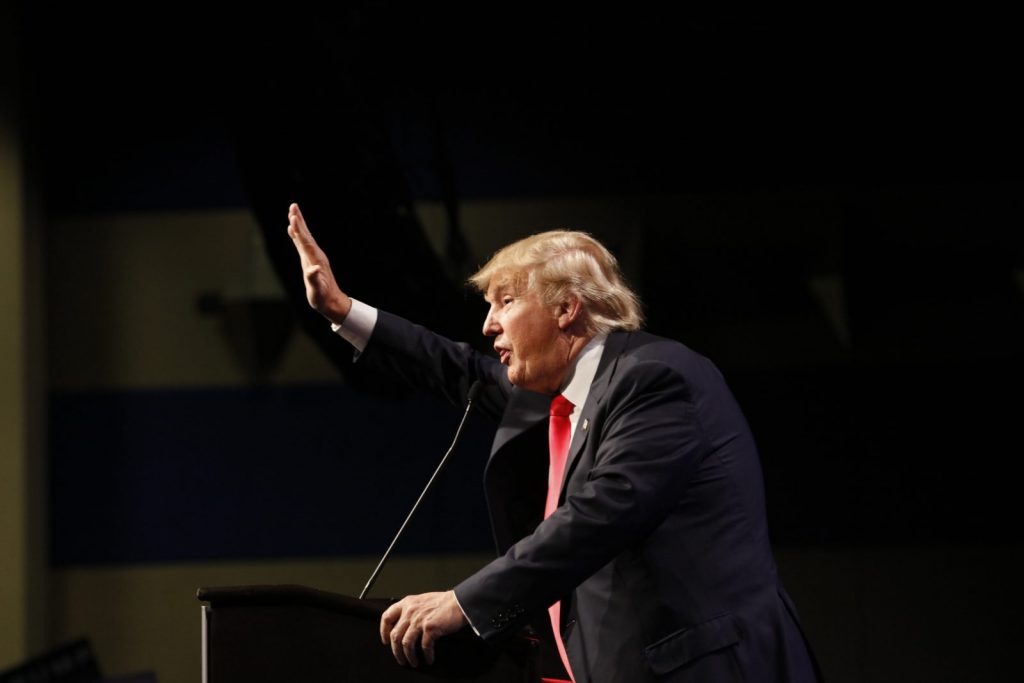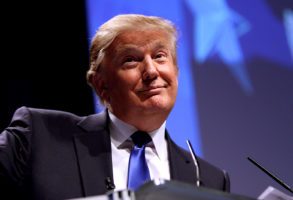
Published January 22, 2017
A year ago, I declared on these pages that despite being a Republican my whole life, I would not under any circumstances vote for Donald J. Trump for president. Since then, I’ve been asked by other Republicans if I kept that promise (I did) and whether I regret it (I don’t).
Republicans who disagree with my stance make the following argument: Mr. Trump, while flawed, is preferable to Hillary Clinton. His cabinet appointments, they say, have been reassuring, and it’s true that several of them are. In addition, the nominee to replace Antonin Scalia on the Supreme Court is certain to be more of an originalist than a Clinton appointment would be. On top of that, Republicans are in control of Congress, meaning they are likely to drive much of the agenda, particularly given Mr. Trump’s notable lack of interest in policy. Whatever misgivings anti-Trump conservatives might have had about him, he’ll undo much of the agenda of his liberal predecessor while Mrs. Clinton would have built on it.
This case is hardly irrational, and over time it may be proved right. President Trump may govern well and in a conservative manner, and my concerns about him may eventually look misguided and silly.
But I doubt it.
To understand why, it’s worth keeping in mind that my chief worries about Mr. Trump were never strictly ideological; they had to do with temperament and character.
This isn’t to say that I didn’t have worries based on Mr. Trump’s deviations from conservatism, a political philosophy he seems to have no real interest in or acquaintance with. Yet it was always a guarantee that on policy he would do more things conservatives would like than Mrs. Clinton would. But that was outweighed by other considerations.
The more pressing concern many of us had about Mr. Trump is that he simply isn’t up to the job of being president. And much that has happened during the transition period has confirmed those concerns. One example: Last weekend Mr. Trump gave an interview to the Washington Post in which he said his administration would quickly put out its own health proposal, which would cover everyone now insured and cost much less.
One problem: There is no Trump proposal. As Yuval Levin, my colleague at the Ethics and Public Policy Center, points out, it was the creation of his own imagination. Republicans on Capitol Hill and Mr. Trump’s own team were utterly perplexed by what Mr. Trump said, and not for the first time. The extraordinary and unenviable task facing the White House staff is to contain Mr. Trump, to keep a dysfunctional president from producing a dysfunctional presidency.
Beyond that, Mr. Trump has continued to demonstrate impulsivity and narcissism, an affinity for conflict and vindictiveness. Which leads to my main worry about Mr. Trump: His chronic lack of restraint will not be confined to Twitter. His Twitter obsessions are manifestation of a deeper disorder.
Donald Trump is a transgressive personality. He thrives on creating disorder, in violating rules, in provoking outrage. He is a shock jock. This might be a tolerable (if culturally coarsening) trait in a reality television star; it is a dangerous one in a commander in chief. He is unlikely to be contained by norms and customs, or even by laws and the Constitution. For Mr. Trump, nothing is sacred. The truth is malleable, instrumental, subjective. It is all about him. It is always about him.
The easy part, the transition to power, is over. The hard part begins now. So this concern arises: When President Trump is buffeted by events — when hard times hit, when crises arise, when other politicians and world leaders do not bend to his will — pernicious things will happen. Rather than try to address the alienation and anger that exists in America, he will amplify them. He’ll create yet more conspiracy theories. He will also go in search of enemies — the press, the opposition party, other nations, even Republican leaders — in order to create diversions that inflame his most loyal supporters. And when he locates his targets, he will do what is second nature to him, which is to try to delegitimize and destroy them. What’s different now is that he will have the additional, awesome power of the presidency at his disposal.
We cannot know the outcome of events in advance, but we can draw reasonable inferences. One of them is this: In failing to distinguish between the good of the nation and his own vanity, the danger is that Mr. Trump will fail to see the limits of his authority and will try to use both the bully pulpit and the power of government — the I.R.S., the F.B.I., regulatory agencies and others — to settle personal scores. He’ll do what he needs to in order to get his way. That has been the animating force in his life.
In “The Abolition of Man,” C. S. Lewis wrote, “I am very doubtful whether history shows us one example of a man who, having stepped outside traditional morality and attained power, has used that power benevolently.”
Donald Trump has not only spent much of his life stepping outside of traditional morality; he seems to delight in doing so. If I am right about Mr. Trump, and Lewis is right about history, then it is unlikely that President Trump will use his power benevolently. Quite the opposite, in fact.
Because Republicans control Congress, they have the unique ability and the institutional responsibility to confront President Trump.
What this means is that Republican leaders in Congress need to be ready to call Mr. Trump on his abuses and excesses, now that he is actually in office. It is a variation of the Golden Rule, in this case treating others, including a Republican president, as they deserve to be treated. They need to ask themselves a simple, searching question: “If Barack Obama did this very thing, what would I be saying and doing now?” — and then say and do it.
In anticipating a Trump presidency, I wish my hopes exceeded my fears. But Donald Trump has given us many reasons to worry. A man with illiberal tendencies, a volatile personality and no internal checks is now president. This isn’t going to end well.
Peter Wehner, a senior fellow at the Ethics and Public Policy Center, served in the previous three Republican administrations and is a contributing opinion writer.








